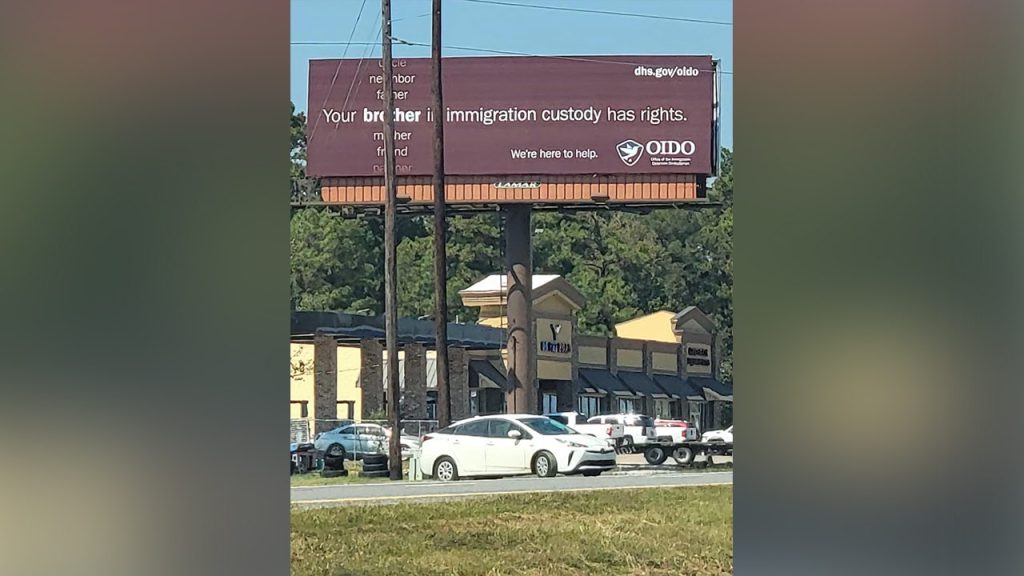The Department of Homeland Security (DHS) has been using taxpayer money to put up billboards in Texas offering help to individuals with friends and family in immigration custody. These billboards are part of a campaign by the DHS’s Office of the Immigration Detention Ombudsman (IDO), which was established in 2019 to help individuals with complaints about potential violations of immigration detention standards or misconduct by personnel. The IDO also provides oversight of immigration detention facilities, with Michelle Brané currently serving as the IDO at DHS. The billboards have caused controversy, with sources from U.S. Immigrations and Customs Enforcement (ICE) and Border Patrol expressing anger about the ads, stating that they are unnecessary and insulting.
Despite concerns raised by ICE and Border Patrol, DHS continues to use taxpayer money for these billboards, which have been criticized for sending a soft on illegal immigration message. Questions about the cost of the billboards and the number of signs erected in various states have been posed to DHS, but the agency has not provided further information on the outreach campaign. Texas representatives have voiced their opposition to the billboards on social media, with Rep. Chip Roy, R-Texas, expressing alarm about the potential legal arguments that could be used to argue against deportation of individuals due to the billboards. Roy, along with Rep. Tony Gonzales, R-Texas, have called for Congress to pull the plug on programs like these that they believe are wasting taxpayer money and undermining the enforcement of immigration laws.
The billboards and the message they convey have sparked a debate about immigration policies and the role of DHS in enforcing immigration laws. While DHS maintains that it provides the highest standard of care for individuals detained in its custody, critics argue that taxpayer money should not be used to provide legal advice to individuals who may be in the country illegally or have broken the law. The billboards have reignited concerns about an open borders agenda being promoted by DHS, with some politicians calling for a reevaluation of government spending priorities and a focus on keeping American families safe. The controversy surrounding the billboards highlights the contentious nature of immigration policy in the United States and the ongoing debates about how best to address issues related to immigration detention and enforcement.
The conflict over the billboards in Texas reflects broader disagreements within the political landscape about immigration policy and the appropriate role of the government in addressing immigration issues. Members of Congress have raised concerns about the use of taxpayer money for billboards that they believe undermine existing immigration laws and enforcement efforts. The controversy has underscored the need for a comprehensive and nuanced approach to immigration policy that takes into account the concerns of various stakeholders, including law enforcement agencies, government officials, and advocacy groups. Moving forward, it remains to be seen how the DHS will respond to criticism about the billboards and whether there will be any changes in the agency’s approach to communicating with individuals in immigration custody.













